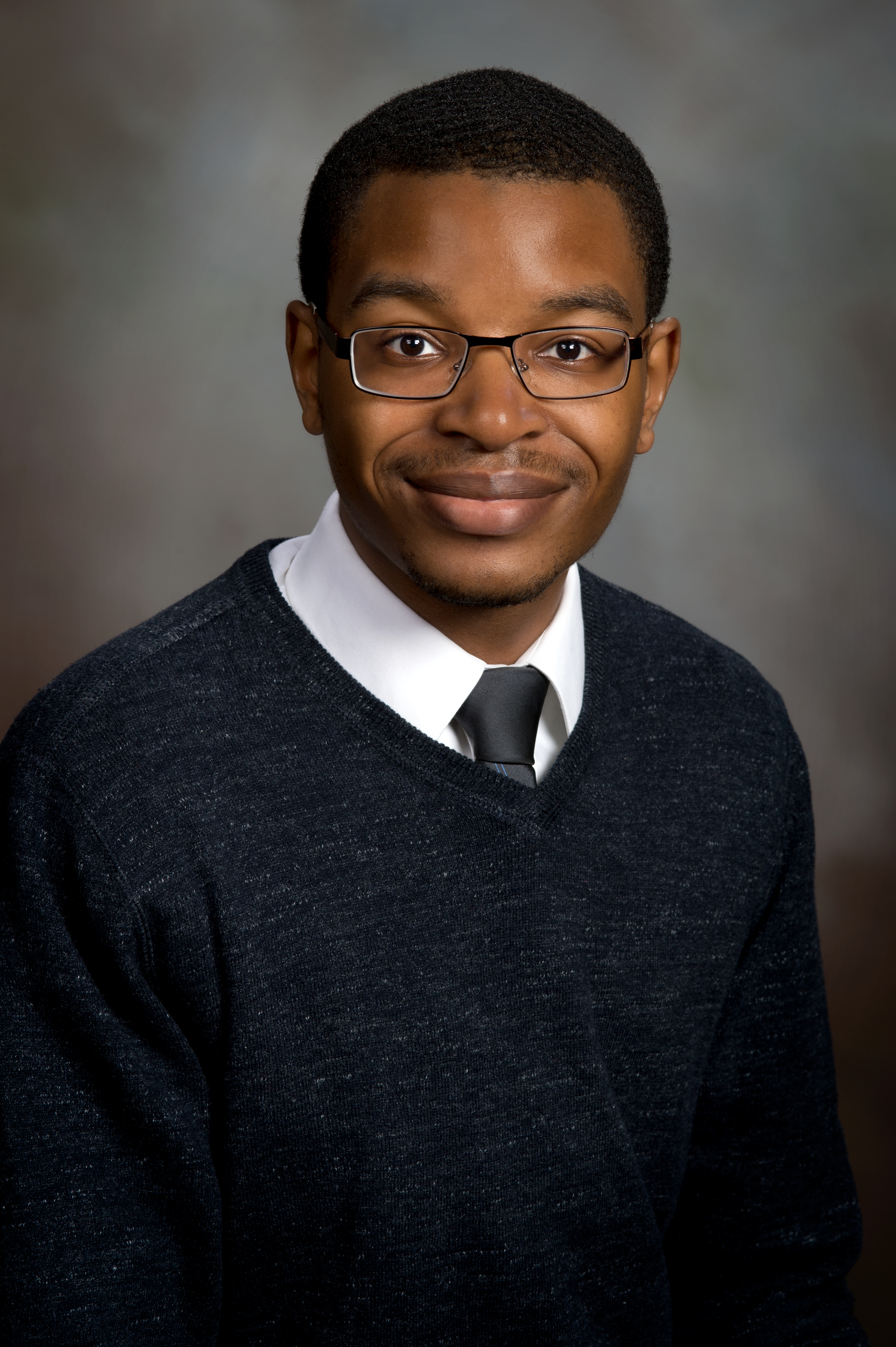The Class of 2014: Undergraduate research put Byron Hayes on a new career track

Byron Hayes of Portsmouth, Va., a senior majoring in biochemistry in the College of Agriculture and Life Sciences, faced a problem as he approached the end of his undergraduate career – choosing which one of the four competitive graduate schools that accepted him to attend for doctoral studies.
The decision was not a bad problem to face, the result of hard work to make the Dean’s List every semester while balancing several undergraduate research projects. After commencement, Hayes will head to Duke University to pursue his Ph.D. in pathology.
Hayes committed each of his summers to undergraduate research, as well as continuing some projects through the fall and spring semesters. His first project was with Boris Vinatzer, associate professor of plant pathology, physiology, and weed science.
“I worked on trying to trace the spread of a plant pathogen in potatoes,” Hayes said. “We were trying to see how it spread over the years and we analyzed different strands from around the world. We also looked at the variations in the genetic code of the different strains to see how it spread over time.”
Through the Virginia - North Carolina Alliance for Minority Participation, a program designed to increase the graduation rates of underrepresented students in the Science, Technology, Engineering and Mathematics (STEM) fields, Hayes studied one summer at Virginia Commonwealth University in its Department of Microbiology and Immunology. The alliance is a member of the Louis Stokes Alliance for Minority Participation grant, a national project funded by the National Science Foundation.
“We looked at a pathogen that affects people with problems such as cystic fibrosis or other chronic pulmonary diseases,” Hayes said. “We were trying to see if we could delete a gene to help in treatment.”
Hayes continued work throughout his undergraduate experience in Vinatzer’s lab, working on three projects. One was recently published; the other two are under review.
If Hayes had not pursued undergraduate research experiences, he says he may have pursued another career path.
“If you are involved in undergraduate research, you get a truer idea of what you may want to do in the future,” Hayes said. “I know for me, if I had never gotten involved in undergraduate research, I would probably still be thinking about going to medical school. I wouldn’t have found out my interest in research specifically without that experience as an undergraduate.”
While science is his passion, Hayes complemented his undergraduate experience with a minor in religion and culture as well as extracurricular activities.
“If you spend a lot of time in one field, you get a bit bogged down. Having something else provides balance,” Hayes said. “The minor in religion and culture was helpful too, especially with my writing. You don’t do a lot of writing in science. I also enjoyed getting to learn about different cultures around the world.”
Hayes served as vice president of the CommonWEALTH of Scholars, an honors organization designed to enrich the academic and leadership experience of high-achieving undergraduates who are from groups currently under-represented in higher education. He also served this year as treasurer of the Minorities in Agriculture, Natural Resources, and Related Sciences student chapter at Virginia Tech, an organization he’s been involved with since his first year.
As Hayes leaves Virginia Tech, he won’t be curing people as a medical doctor as he once expected. “My biggest interest is vaccine development. I’m really interested in infectious disease like tuberculosis and malaria.” After finding his passion in bench research, Hayes could be part of a cure from the laboratory.




